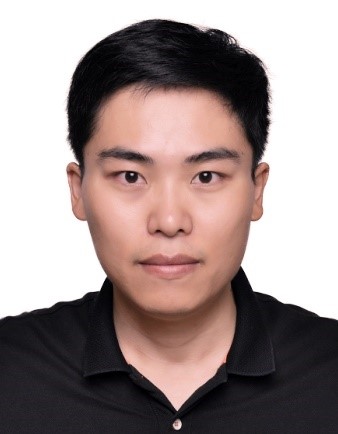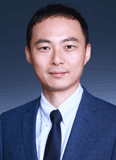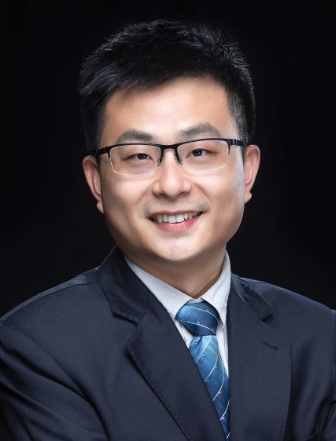
Keynote Speakers
SPEAKERS |
Prof.Dusit (Tao) Niyato IEEE Fellow, IET Fellow Nanyang Technological University (NTU), Singapore | Bio:Dusit Niyato is currently a President's Chair Professor in Computer Science and Engineering in the School of Computer Science and Engineering, Nanyang Technological University, Singapore. He received B.E. from King Mongkuk's Institute of Technology Ladkrabang (KMITL), Thailand in 1999 and Ph.D. in Electrical and Computer Engineering from the University of Manitoba, Canada in 2008. Dusit's research interests are in the areas of distributed collaborative machine learning, Internet of Things (IoT), edge intelligent metaverse, mobile and distributed computing, and wireless networks. Dusit won the 2011 IEEE Communications Society Fred W. Ellersick Prize Paper Award and the IEEE Computer Society Middle Career Researcher Award for Excellence in Scalable Computing in 2021 and Distinguished Technical Achievement Recognition Award of IEEE ComSoc Technical Committee on Green Communications and Computing 2022. Dusit is serving as Editor-in-Chief of IEEE Communications Surveys and Tutorials, an area editor of IEEE Transactions on Vehicular Technology, editor of IEEE Transactions on Wireless Communications, associate editor of IEEE Internet of Things Journal, IEEE Transactions on Mobile Computing, IEEE Wireless Communications, IEEE Network, and ACM Computing Surveys. He was a guest editor of IEEE Journal on Selected Areas on Communications. He was a Distinguished Lecturer of the IEEE Communications Society for 2016-2017. He was named the 2017-2022 highly cited researcher in computer science. He is a Fellow of IEEE and a Fellow of IET. Ttile:Blockchain-Empowered Semantic and Lifecycle Management for AI-Generated Content (AIGC) in Edge Networks Abstract:The rapid development of Artificial Intelligence Generated Content (AIGC) has brought daunting challenges regarding service latency, security, and trustworthiness. Recently, researchers presented the edge AIGC paradigm, which effectively optimizes service latency by distributing AIGC services to edge devices. However, AIGC products are still unprotected and vulnerable to tampering and plagiarism. Moreover, as a kind of online non-fungible digital property, the free circulation of AIGC products is hindered by the lack of trustworthiness in open networks. In this talk, we first present an overview of AIGC and its lifecycle, including content creation, verification, distribution, and storage. Then, we highlight the security challenges in AIGC, and for the first time, we present a blockchain-empowered framework to manage the lifecycle of edge AIGC products. Specifically, leveraging fraud proof, we propose a protocol to protect the ownership and copyright of AIGC, called Proof-of-AIGC. We then design an incentive mechanism to guarantee the legitimate and timely execution of funds-AIGC ownership exchanges among anonymous users. Furthermore, we present the design of a blockchain-aided semantic communication framework for AIGC services to facilitate interactions between the physical and virtual domains among service providers and edge devices. We also design a semantic defense scheme that uses the blockchain and zero-knowledge proofs to check the authenticity of semantic data transformations. Finally, we discuss major research directions of blockchain in AIGC services. |
Prof. Dr.-Ing. Abdelhak M. Zoubir IEEE Fellow, EURASIP Fellow Technische Universität Darmstadt,Germany | Bio:Abdelhak M. Zoubir is a Fellow of the IEEE for contributions to statistical signal processing and an IEEE Distinguished Lecturer (Class 2010-2011). He received the Dipl.-Ing. degree (BSc/BEng) from Fachhochschule Niederrhein, Germany, in 1983, the Dipl.-Ing. (MSc/MEng) and the Dr.-Ing. (PhD) degree from Ruhr-Universität Bochum, Germany, in 1987 and 1992, respectively, all in Electrical Engineering. Early placement in industry (Klöckner-Moeller & Siempelkamp AG) was then followed by a Research Associate position with the Signal Theory Group at Ruhr-Universität Bochum, Germany. In June 1992, he joined Queensland University of Technology where he was Lecturer, Senior Lecturer and then Associate Professor in the School of Electrical & Electronic Systems Engineering. In March 1999, he took up the position of Professor of Telecommunications at Curtin University of Technology, where he was Head of the School of Electrical & Computer Engineering from November 2001 until February 2003. He has been Professor of Signal Processing and Head of the Signal Processing Group at Technische Universität Darmstadt since February 2003. Ttile:To be determined ... Abstract:To be determined ... |
Prof. Xu Chen Sun Yat-sen University, China | Bio:Dr. Xu Chen is currently a Full Professor at School of Computer Science and Engineering and the Director of Institute of Advanced Networking & Computing Systems, Sun Yat-sen University, Guangzhou, China. He obtained the Ph.D. degree in Information Engineering from The Chinese University of Hong Kong. Dr. Chen worked as a Postdoctoral Fellow with Arizona State University in USA and then a Humboldt Scholar Fellow with University of Goettingen in Germany. Dr. Chen has published over 200 scientific papers in leading international conferences and journals, many of which appear in top-tier conferences such as MOBIHOC, ICDCS and INFOCOM and top-tier journals such as IEEE JSAC, IEEE TON and IEEE TMC. His research results have been highly visible, with multiple publications being selected as 1‰ ESI Hot Papers by Web of Science. For his high-quality research works, Dr. Chen received the prestigious Humboldt research fellowship awarded by Alexander von Humboldt Foundation, 2014 Hong Kong Young Scientist Runner-up Award, 2022 IEEE Communications Society Asia Pacific Outstanding Paper Award, 2022 IEEE Internet of Things Journal Best Paper Runner-Up Award, 2022 IEEE Computer Society Best Paper Awards Runner-up , 2017 IEEE Communication Society Asia-Pacific Outstanding Young Researcher Award, 2017 IEEE ComSoc Young Professional Best Paper Award, Honorable Mention Award of 2010 IEEE international conference on Intelligence and Security Informatics (ISI), Best Paper Runner-up Award of 2014 IEEE International Conference on Computer Communications (INFOCOM), and Best Paper Award of 2017 IEEE International Conference on Communications (ICC). Dr. Chen is an IEEE ComSoc Distinguished Lecturer (2023-2024), and serves as an area editor (IoT/Edge/Cloud areas) for IEEE Open Journal of the Communications Society, and associate editors for IEEE Transactions on Wireless Communications, IEEE Transactions on Vehicular Technology, IEEE Internet of Things Journal, and IEEE Journal on Selected Areas in Communications (JSAC) Series on Network Softwarization and Enablers. He also serves as TPC members for a series of top tier conferences including MOBIHOC, INFOCOM, ICC and GLOBEOCOM. Ttile:Enabling Real-Time Deep Graph Inference with Edge Computing Abstract:Graph Neural Networks (GNNs) have gained growing interest in miscellaneous applications owing to their outstanding ability in extracting latent representation on graph structures. To render GNN-based service for IoT-driven smart applications, the traditional model serving paradigm resorts to the cloud by fully uploading the geo-distributed input data to the remote datacenter. However, our empirical measurements reveal the significant communication overhead of such cloud-based serving and highlight the profound potential in applying the emerging edge/fog computing. To maximize the architectural benefits brought by fog computing, in this talk, we present Fograph, a novel distributed real-time GNN inference framework that leverages diverse resources of multiple edge nodes in proximity to IoT data sources. By introducing heterogeneity-aware execution planning and GNN-specific compression techniques, Fograph tailors its design to well accommodate the unique characteristics of GNN serving in edge environments. |
Prof. Wen Liu Wuhan University of Technology, China | Bio:Wen Liu is a Full Professor with the School of Navigation, Wuhan University of Technology (WUT), Wuhan, China. He obtained the B.Sc. degree with the highest honors in Information and Computing Science from WUT in 2009, and the Ph.D. degree from The Chinese University of Hong Kong (CUHK), Hong Kong, in 2015. He was a Visiting Scholar with the Agency for Science, Technology and Research (A*STAR), Singapore. His research interests mainly include intelligent transportation; intelligent navigation; maritime surveillance, and data fusion. He has published more than 100 peer-reviewed papers in peer-reviewed journals and conferences, such as IEEE TPAMI, IEEE TITS, IEEE TII, IEEE IoTJ, IEEE TNSE, IEEE/CVF CVPR, etc. Many papers have been recognized as ESI Hot and Highly Cited Papers. He has won 2 Best Paper Awards in international conferences, e.g., IEEE CPSCom, AAAI Workshop: AI for Transportation. He serves as an Associate Editor or Guest Editor for many journals such as International Journal on Semantic Web and Information Systems, Journal of Advanced Transportation, Journal of Marine Science and Technology, etc. Ttile:To be determined ... Abstract:To be determined ... |
Assoc. Prof. Xiang Li Tsinghua University, China | Bio:Xiang Li is an Associate Professor with the Department of Automation, Tsinghua University. He has been the Associate Editor of IEEE Robotics and Automation Letters since 2022. He was the Associate Editor of IEEE Robotics & Automation Magazine from 2019 to 2021 and the Associate Editor of ICRA from 2019 to 2021. He received the Highly Commended Paper Award in 2013 IFToMM, the Best Paper in Robotic Control in 2017 ICAR, the Best Application Paper Finalists in 2017 IROS, and the T. J. Tarn Best Paper in Robotics in 2018 IEEE ROBIO. His current research interests include robotic manipulation, vision-based control, micro/nano robots, and human-robot interaction. Ttile:To be determined ... Abstract:To be determined ... |
Dr. Feng Yin The Chinese University of Hong Kong, Shenzhen, China | Bio:Feng Yin received his B.Sc. degree from Shanghai Jiao Tong University, China, and his M.Sc. and Ph.D. degrees from Technische Universitaet Darmstadt, Germany. From 2014 to 2016, he was a postdoc researcher with Ericsson Research, Linkoping, Sweden. Since 2016, he has been with The Chinese University of Hong Kong, Shenzhen, as an assistant professor. His research interests include statistical signal processing, Bayesian learning and optimization, and sensory data fusion. He has published more than 80 top-tier journal papers and flag-ship conference papers, more than 20 patents/standards. He was a recipient of the Chinese Government Award for Outstanding Self-Financed Students Abroad in 2013 and the Marie Curie Young Scholarship from the European Union in 2014. He was the finalist for the IEEE CAMSAP conference best paper award in 2013 and received the best paper award of Springer ICSINC-2022 conference. He is an IEEE senior member and currently serving as the Associate Editor for the Elsevier Signal Processing Journal. Ttile:To be determined ... Abstract:To be determined ... |





